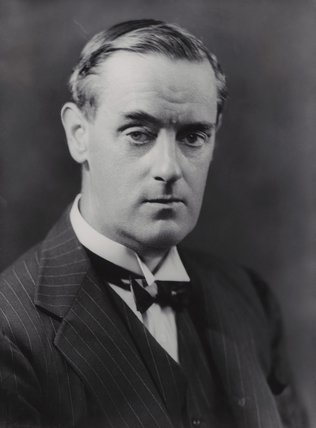Lord Linlithgow (1936-42)

During his tenure, popular ministries were formed. In seven out of eleven provinces, Congress formed Ministries in 1937. Under this Act, the elected representatives had no real power and the Governor often intervened in the domain of ministers.
Second World War and the Congress : In September 1939 the second World War broke out and the British Viceroy proclaimed war on Germany on behalf of India without consulting the Indians. It was resented by the Congress. The Congress demanded complete independence so that India as a free nation
might help the British war efforts which the Government rejected. Consequently, the Congress Ministries resigned in October 1939 which was followed by Individual civil disobedience movement in 1940.
Escape of Netaji: Subhash Chandra Bose popularly-known as Netaji who was under house arrest in those days managed to escape out of India. He organised Indian National Army in South-East Asia and intended to defeat the Britishers with the help of Japanese but failed.
Read Also: BRITISH RULE-LORD WAVELL (1942-47)
Session of Muslim League (1940): In its session held in Lahore in March 1940, Muslim League demanded Pakistan, a separate state for Indian Muslims on the basis of Two Nation theory. ,
Cripps Mission : The deadlock continued and in the meanwhile, Rangoon fell to the Japanese on March 8,1942. The British Government realised the urgency of the cooperation of Indian people to halt the advance of Japanese and thus three days after the fall of Rangoon, the British Government hastened to send Sir Stafford Cripps, a member of the British Cabinet, to India, to settle terms with Indian leaders who were forthwith released. Cripps proposed Dominion Status after the war and his proposal *was rejected by all the political parties for some or the other reason.
Quit India Movement : On August 8, 1942, at its meeting in Bombay, the All India Congress Committee, in a resolution known as Quit India Resolution asked the British to quit India. The following day on August 9, 1942, Gandhiji and other leaders were arrested. The arrest of the leaders was followed by a revolutionary struggle between the people and the Government.


jaipur was a victim of DOCTRINE OF LAPSE but its not under the wikipedia list …
Amazing … Doing a great job Wowww http://www.google.co.in salute to the team… I love reading your articles
There are so many spelling mistakes . Please rectify those mistakes, otherwise the article will be rendered useless.
Awesome great information
Thanx
What’s for the students preparing for IAS but preffered or choose Hindi medium
Verry good
It should definitely improve knowledge
Nicer
Amazing job keep it up
Give some information in hindi also
Best
New techniques required